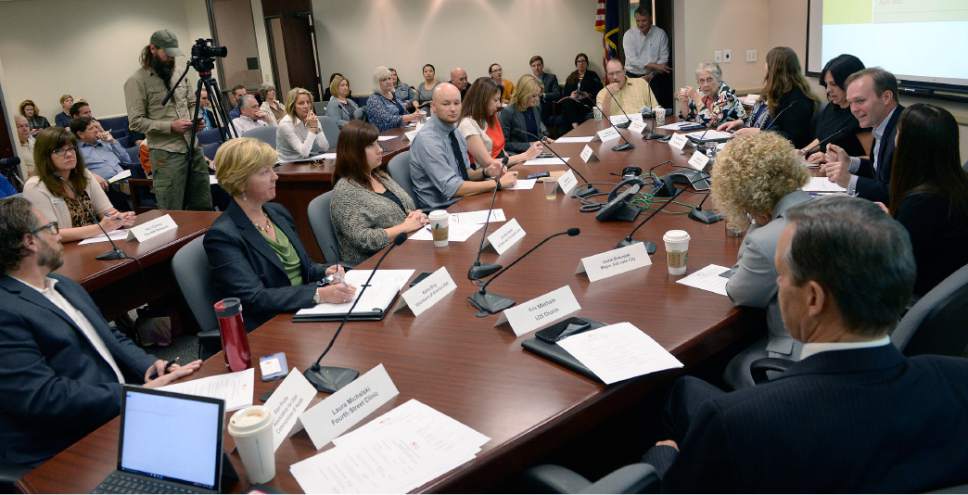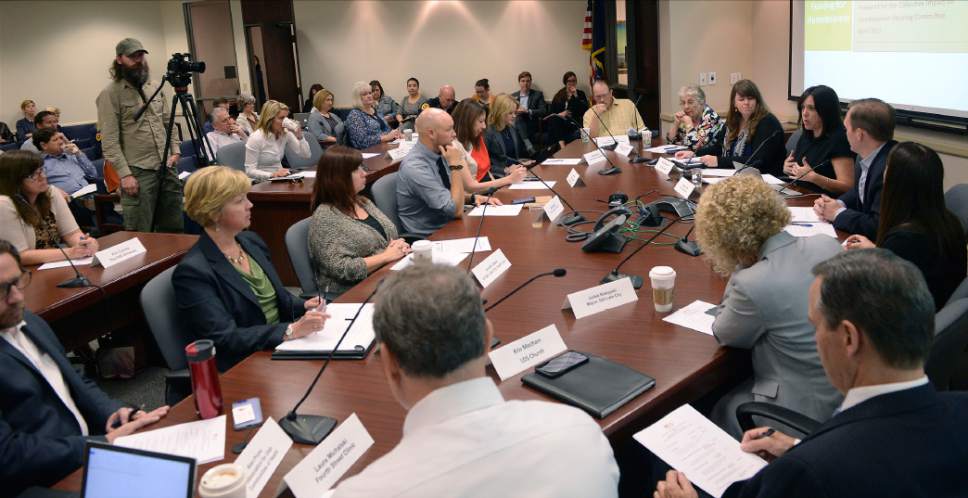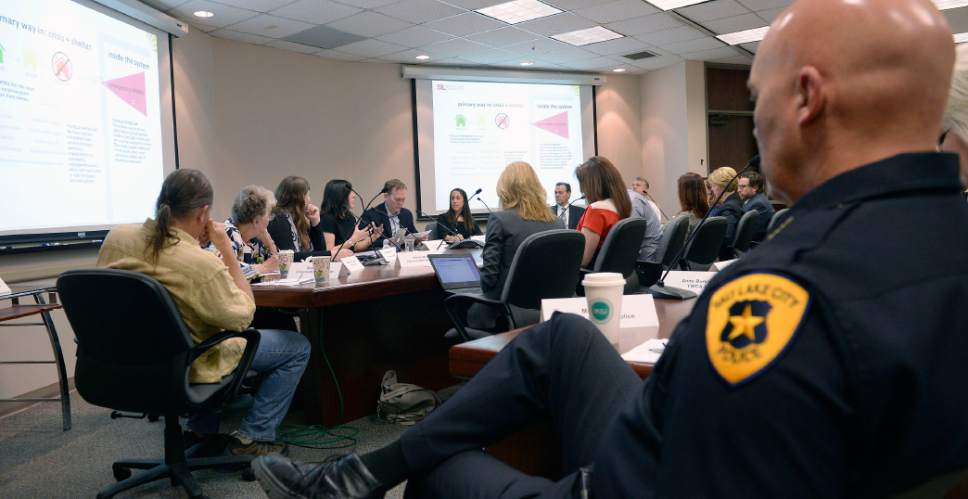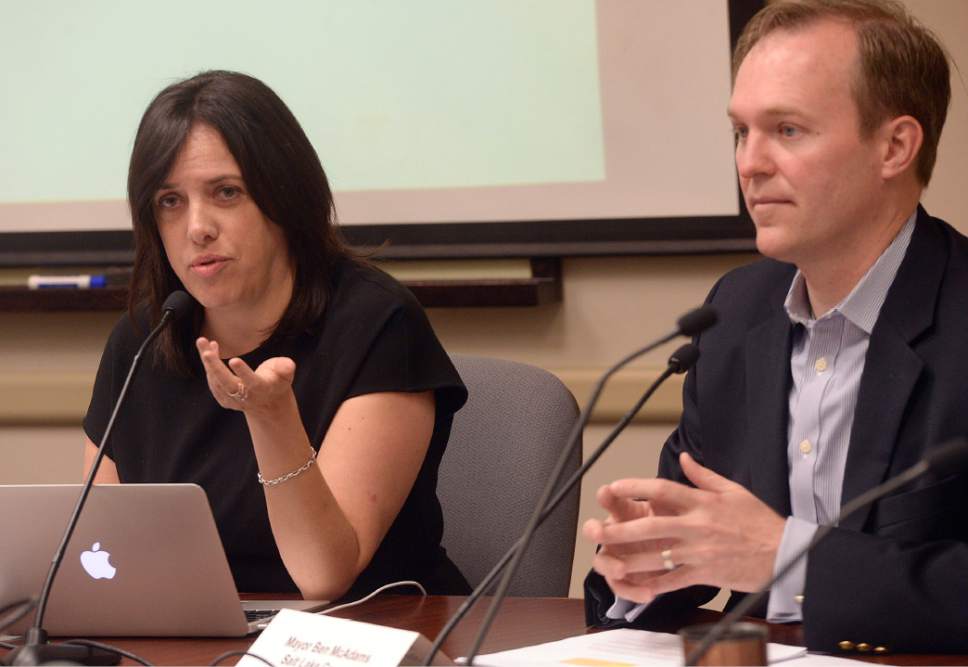This is an archived article that was published on sltrib.com in 2017, and information in the article may be outdated. It is provided only for personal research purposes and may not be reprinted.
Salt Lake County is looking to step away from its spot in the middle of an ongoing homelessness reform effort of recent years.
Under a proposal that's already moving ahead and doesn't require a vote or formal action, the county is preparing to hand off its status as pilot of the effort to align homeless services to a private nonprofit board.
The county would remain involved as a major source of funding, county officials say. But to continue the work of aligning resources without risking interruption every election, Salt Lake County Mayor Ben McAdams said, it's best for a private group to take over the lead.
"In order to sustain the great work that's been done, it needs to transition out of government and to be more collaborative," McAdams said Wednesday. "The best way to have it continue to exist and do the work that it's doing is to transition it to a nonprofit that won't do things in four-year increments."
Over the past two years, McAdams and other county employees have been what McAdams called "the backbone" of support behind Collective Impact, the steering group working to reform the way services are provided to the homeless.
The effort, which is now being supported by $27 million from the Legislature, includes closing the 1,100-bed homeless shelter downtown and replacing it with smaller centers across the city and county. Two 200-bed facilities will be in Salt Lake City. A state committee on Monday affirmed McAdams's decision to put the third shelter in South Salt Lake.
When its work began, government officials didn't have a clear handle on the overall network of money and services needed to house, treat, feed and employ homeless residents.
"We had funders working in silos," Shaleane Gee, the county's director of special projects and partnerships, said. "We've done a lot of work there to try to align funding."
The county has run logistics for meetings with the over two dozen people from local government, nonprofit, law enforcement and private groups on the Collective Impact committee.
The group was determined to improve the way the region provides shelter and care for hundreds of homeless residents, whose main point of access for care is at The Road Home in the Rio Grande neighborhood.
The nonprofit board that will head the logistical effort behind homeless services as the state, city and county continue with reforms is Shelter the Homeless, the entity that owns The Road Home.
Shelter the Homeless will also own the three new shelters when they open and the downtown shelter closes by June 30, 2019, under a state deadline.
The group's revamped board would also be the "umbrella group" over homeless services, with elected officials and other members on its board, county officials said Wednesday.
"Think about it as that board convening those elected officials with the community to support each other but hold them accountable, too," Gee said. "You don't have the ongoing decisions about homelessness policy and stakeholder convenings being done by any one elected official."
The county has funded the Shelter the Homeless executive director, Janell Fluckiger, and the group will soon begin to add staff and assemble the board. At least one member of the Collective Impact committee said he was concerned about the proposed change.
"Our concern is that Collective Impact as a whole becomes subset of a nonprofit board, rather than an initiative of the county and the city," said Glenn Bailey, executive director of the Crossroads Urban Center. "Then we're kind of just an advisory board to this other group."
Bailey said his main concern is who is on the board, and that he could see benefits to having a private group oversee the work.
"We're just kind of concerned about who gets to be appointed to that board and what are their connections or motivations?" he said. "We think they should be people who have a heart for serving homeless folks and not some other political agenda like moving the shelter."
Palmer DePaulis, a former director of the Department of Workforce Services and one-time Salt Lake City mayor, said he was contacted about two weeks ago to be part of the Shelter the Homeless board.
The group will be central in coming months as it develops a plan and submits it to the state Homeless Coordinating Committee for approval and funding.
That proposal will also likely determine which populations of people — single men, single men and men and women combined — will be served at each of the new homeless centers, Gee said.
Twitter: @TaylorWAnderson









